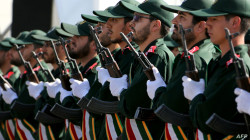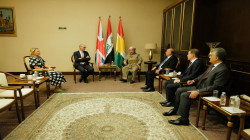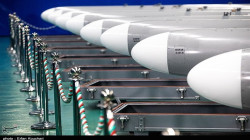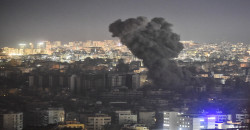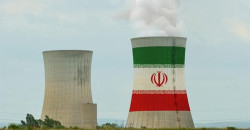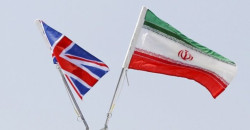US and UK raise alarms over possible Russia-Iran “nuclear secrets” exchange
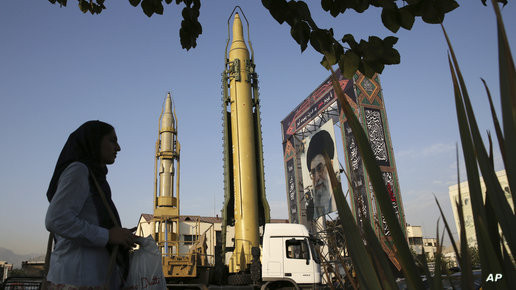
Shafaq News/ On Friday, US President Joe Biden and UK Prime Minister Keir Starmer expressed significant concerns during their summit in Washington about the possibility of Russia sharing “nuclear secrets” with Iran in exchange for ballistic missiles.
These missiles, believed to be intended for Russia's ongoing conflict with Ukraine, have heightened fears regarding a growing nuclear threat.
In their discussions, Biden and Starmer acknowledged the deepening military cooperation between Moscow and Tehran, covering several topics such as the Ukraine war, the Middle East crisis, and competition with China.
US Secretary of State Antony Blinken, speaking in London earlier, warned, “For its part, Russia is sharing technology that Iran seeks – this is a two-way street – including on nuclear issues as well as some space information.” He suggested that such interactions between Russia and Iran could destabilize global security.
Concerns about Iran’s potential nuclear weapons have intensified over recent months. The country has significantly increased its stockpile of highly enriched uranium. According to a joint statement from the UK, France, and Germany, Iran has accumulated “four significant quantities” of uranium potentially usable for a nuclear bomb. However, the exact extent of Iran's capability to build a nuclear weapon and the speed at which it could achieve this remain uncertain, as reported by The Guardian.
Security experts have noted that collaboration with Russian specialists could accelerate Iran’s nuclear development. Despite these warnings, Iran continues to deny any intent to develop nuclear weapons.
Iran nuclear deal of 2015, which offered sanctions relief in exchange for restrictions on Iran's nuclear program, collapsed in 2018 following the US withdrawal under then-President Donald Trump, leading Iran to exceed agreed limits on uranium enrichment.
The strengthening alliance between Iran and Russia has raised concerns among Western nations. Since Russia’s full-scale invasion of Ukraine, Iran has supplied Moscow with “Shahed drones” and has reportedly assisted in setting up a drone production facility in Russia. Recent US intelligence has confirmed the delivery of Iranian Fath-360 ballistic missiles to Russia, capable of targeting up to 75 miles (120 kilometers) away.
In this context, Blinken remarked, “US intelligence had concluded that the first batch of high-speed Iranian Fath-360 ballistic missiles had been delivered to Russia,” leading to a “dramatic reassessment in Western thinking” and the imposition of new economic sanctions aimed at limiting this military cooperation.
In the Middle East, Iran’s support for militant groups such as Hamas and Hezbollah has heightened concerns over its nuclear activities. Israel views a potential Iranian nuclear weapon as “a direct threat, especially as Tehran’s proxies in Lebanon and Gaza continue to challenge Israel militarily.”
Notably, the cooperation between Russia and Iran has solidified in opposition to Western interests, contributing to what some analysts term an “axis of upheaval” including China and North Korea.
The accusations against Iran could embolden Ukraine to push for the use of Western-supplied missiles to strike deep within Russian territory.
Iran has denied providing weapons to Russia for the war in Ukraine.
The US and its allies have been warning Iran for months not to transfer ballistic missiles to Russia.
